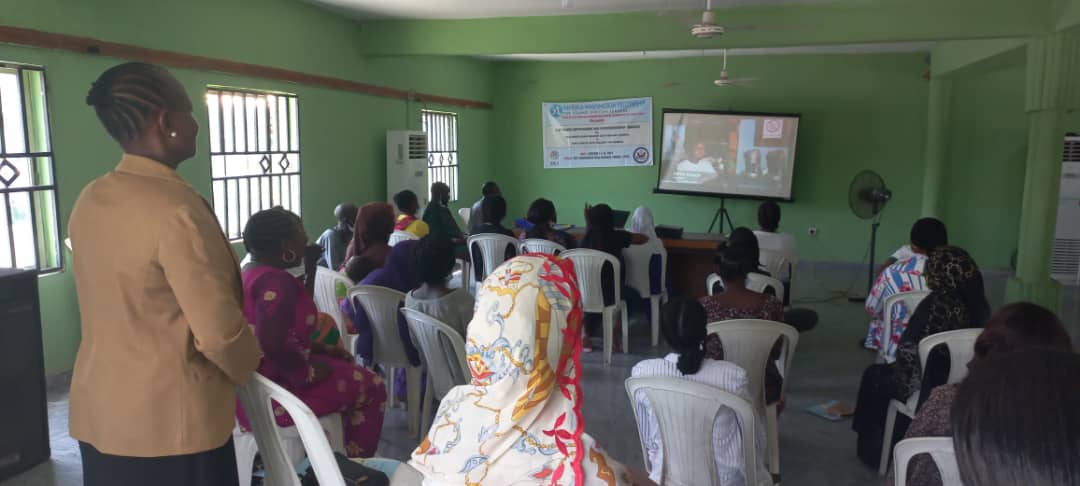Strengthening employability for deaf women in Nigeria

Over 5% of the world’s population suffers from disabling hearing loss, according to the World Health Organization, and across Sub-Saharan Africa, people who are deaf or hard of hearing lack education and employment to set them up for success. Two Mandela Washington Fellowship Alumni are collaborating on a solution to equip women who are deaf with the skills they need for employment and financial self-reliance.
Strengthening education and employability skills
2019 Fellowship Alumna Binta Badjie of The Gambia and 2016 Fellowship Alumnus Mohammed Kabir Ibrahim of Nigeria collaborated on a Leveraging Innovations in New Communities (LINC) Grant to teach deaf women skills to promote financial self-reliance.
Binta is President of the Gambia Association for the Deaf and Hard of Hearing and co-founder of the Gambian Deaf Women’s Society, an organization focused on addressing issues that affect deaf women and children. Through this initiative, she employs deaf women to provide an opportunity to build a significant and stable future.
Mohammed has volunteered with the deaf community for years, designing and developing a special English language curriculum for deaf students. With support from the U.S. Mission in Nigeria, he is also working toward improving the quality of teaching English and American Sign Language (ASL) in primary schools.
This experience… was a professional and personal awakening for me … I look forward to doing more work with the new relations[hips] formed during the course of this collaboration.”
Binta Badjie, 2019 Fellowshiop Alumna, The Gambia
Promoting self-reliance
In early October 2021, the two Fellowship Alumni combined their skills and experience to offer training to 25 deaf women in Nigeria. The training offered transferable skills such as tailoring, catering, and beadwork, along with elements of deaf rights advocacy and empowerment.
The aim of the program was to enable the participants’ financial self-reliance and to share these skills with other deaf women in their communities.
Binta says, “This experience at the most, was a professional and personal awakening for me.”
Following the training, participants will incorporate the knowledge gained during the training into their business practices. Binta and Mohammed will mentor any participant who aspires to set up a business.
Binta and Mohammed predict that each beneficiary will be able to share their skills with 30 other women from their council, with the hope of impacting over 300 additional women.
“The discovery led me to a new professional and interpersonal relationship which I have come to hold dear,” Binta says of her collaboration with Mohammed. “I look forward to doing more work with the new relations[hips] formed during the course of this collaboration.”
Written by Abbie Wade.
Next Story
Angella Asiimwe
2021 Fellowship Alumna, Uganda